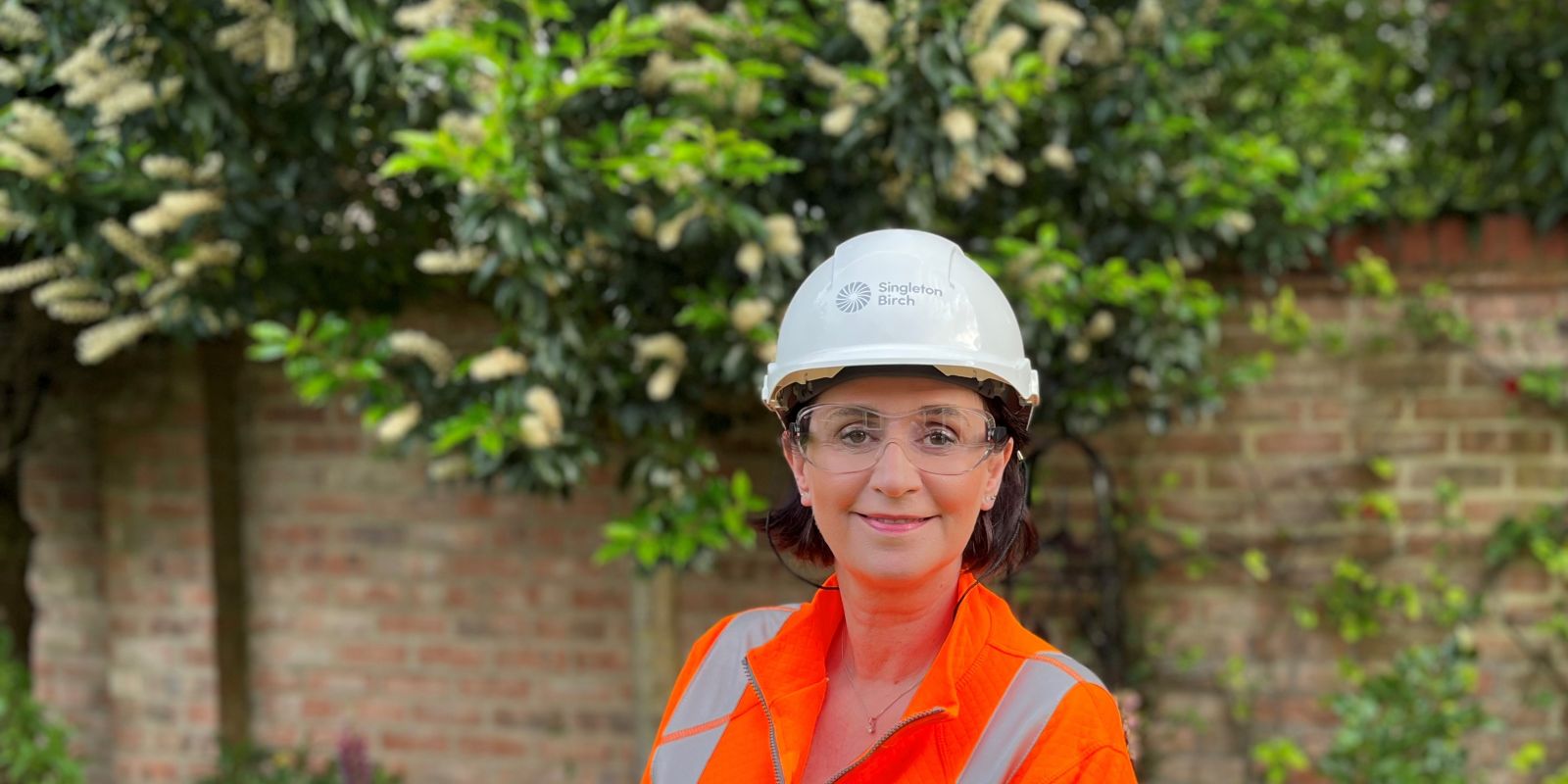Christel Croft is Sustainability Director at Singleton Birch, Managing Director of Birch Energy, a board member of Origen Power, and our latest member of the Greater Lincolnshire LEP Energy Council.
She has a strong interest in decarbonisation and sustainability and is also an independent awards panel member for SparkFund, a STEM ambassador, and supporter of WIME (Women in Manufacturing and Engineering). She shares her career journey and passion for sustainability, as well as encouraging girls into STEM subjects, with us in her blog below.
In 2004, I arrived from the south of France for a temporary work secondment in the petrochemical industry and 18 years later - I am still here! I discovered the beauty of the Humber area, the warmest of welcomes, and have been amazed by the personal and professional opportunities in a place I now call home.
Having dual French and British citizenship, I started my career as a chemist in France and always believed in the critical roles that science and engineering play in developing technologies and products for the future. I discovered that this career path offers exceptional personal and professional development to grow highly valued skills and the opportunity to work with inspiring individuals from hands-on trade professionals and experts to entrepreneurs and inventors.
The last few years have been extremely challenging for individuals, communities, and businesses. It has been a time for deep personal reflection for many, an acknowledgement of highly unpredictable times, and been compounded by changes in global dynamics, volatility of energy prices, added on top of supply chain and climate change issues, has led to very tangible impacts on people’s lives. There is not a simple or unique solution but instead a range of opportunities in line with the three pillars of the sustainability concept; environmental, social, and economic.
Despite (or because of) these challenges, there is an impressive drive shared by many individuals and businesses to tackle these issues and translate them into local, national and often global opportunities.
Businesses are taking the lead with diversification of services and product applications to increase their resilience. They are seeking colocation opportunities with suppliers and customers to improve integration and reduce supply chain and environmental costs. They are also collaborating more to share infrastructure, knowledge, and commercial opportunities.
The Greater Lincolnshire LEP, in partnership with private and public bodies, has been supporting businesses in this transformative growth agenda in a number of ways. This includes working together to deliver the ambitious academic and vocational training pathways which create the right match between personal skills and the need for high value jobs, creating exciting individual opportunities for increasingly engaged citizens. I strongly believe that there are business and individual benefits in attracting more women and girls into science, technology and engineering (currently at around 17% of the sector workforce). Both training and attracting a larger pool of talent will offer sustainable benefits and as employers we need to continue to promote education and all types of employment opportunities to all young people. It is important that the development of our UK legislations, policies and financial incentives continue to support sound good practice and maintain global competitiveness.
I have personally seen and felt climate change awareness change over the years both professionally and personally, alongside the opportunities to make a difference. As my career progressed, I have become increasingly involved in sustainability and decarbonisation projects, developing a personal passion for innovative, pragmatic, and affordable solutions.
I joined Singleton Birch a few months ago as Sustainability Director and I am really excited by their ambitious and innovative approaches. Singleton Birch has an incredible 200 year history and is the UK’s second largest lime supplier with 25% of the market, but has also diversified into related energy, waste, chemicals and service industries. Lime products are extensively used in many industries like water purification, flue gas cleaning, iron and glass industries, construction materials and farming applications and are therefore important to many aspects of our everyday lives.
The manufacturing of lime products falls into the Energy Intensive Industries category due to the use of fossil fuel powered kilns, however our vision is to operate the safest, cleanest, and greenest lime works in the world.
The transition to net zero will transform our business community - but also all of us as individuals in many ways. This is an exciting time as we can all take pride in making changes both for immediate need, as well as laying foundations for future generations.
Christel Croft
Sustainability Director, Singleton Birch & MD, Birch Energy


